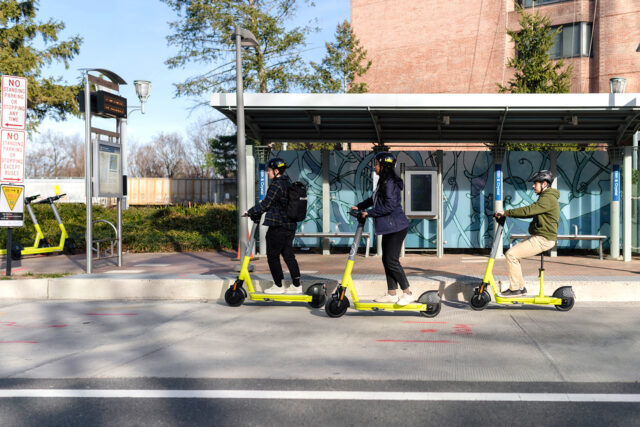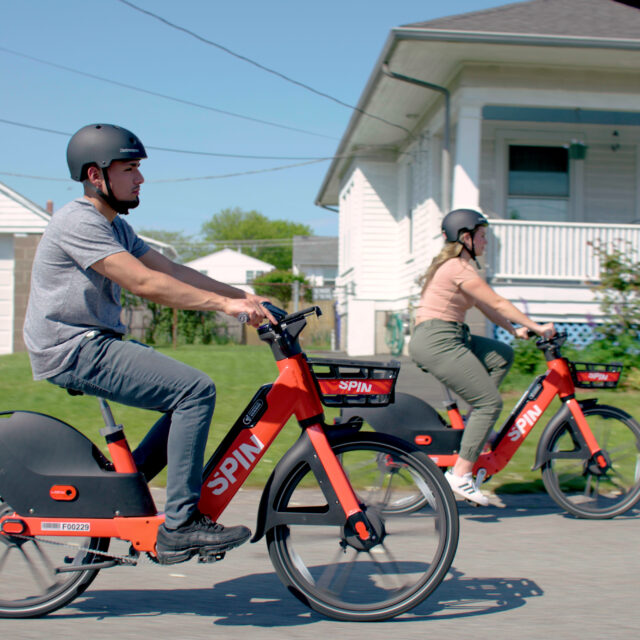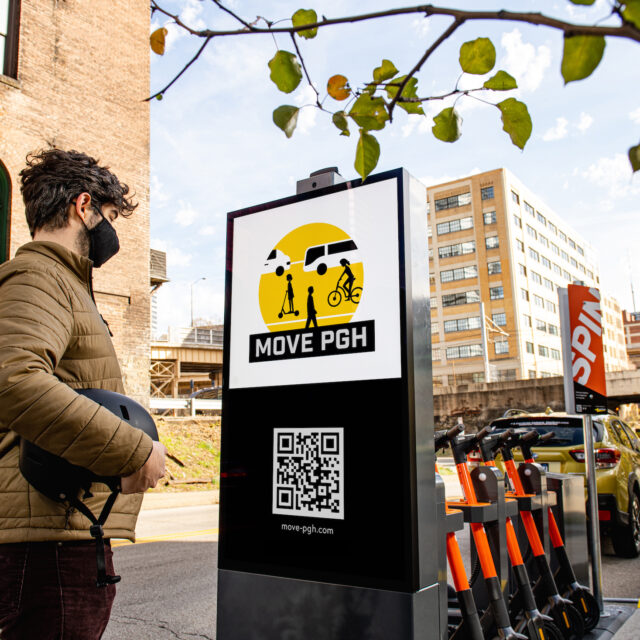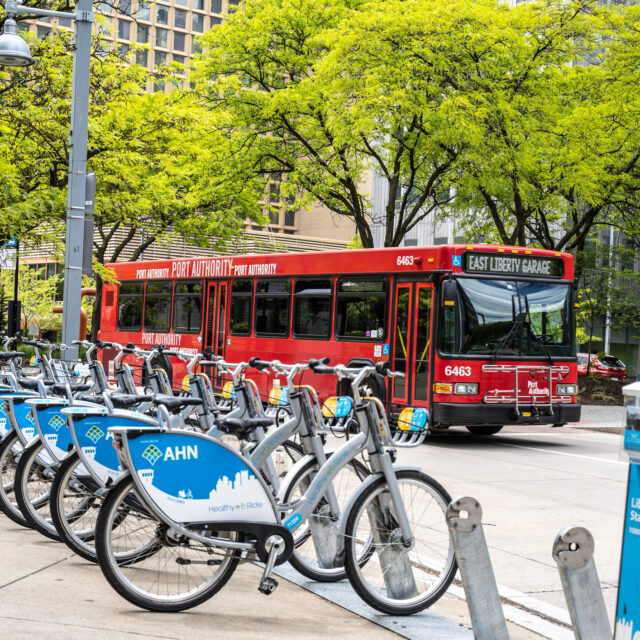A Roadmap for Helping Transit and E-Scooters Work Together
by Kiran Herbert, Communications Manager
May 6, 2022
A new report identifies the ways cities can drive sustainability and equity goals through the integration of multimodal trips.

Superpedestrian, a shared micromobility company based in Cambridge, Massachusetts, has issued a new report on transit integration in partnership with the Cities Today Institute, a peer-to-peer network for urban mobility and innovation leaders. The report — titled “How E-Scooters Are Aligning with Public Transit” — brings together government, system operator, and NGO experts to identify new and existing solutions to increasing multimodal trips.
E-scooter trends have shifted in the last five years, moving from niche to mainstream. At Superpedestrian alone, two-thirds of trips are not related to tourism or recreational use but rather to commuting for work and other essential services. The authors focused on Pittsburgh, Seattle, and Milwaukee in the U.S, as well as Madrid, Spain, due to each city’s unique perspective when it comes to better aligning scooters and public transit.
Based on real-world examples in these places, the report urges cities to consider the following:
- Establishing intermodal transportation hubs, modeled on Move PGH in Pittsbrugh, which is the first mobility as a service (MaaS) project of its kind. By installing e-scooter parking, bike share stations, carshare, carpooling, and transit services at select hubs, Move PGH is helping to make different forms of shared mobility easily accessible — and car ownership obsolete.
Likewise, in Austin, a solar-powered mobility hub seeks to do something similar in the Georgian Acres neighborhood. In Nashville, the public transit agency WeGo is working with Bird, Lime and Spin to share data, fill in mobility gaps and collaborate on station siting. - Integrating micromobility fare systems with public transit fares to lower costs for riders. Some cities, including Kansas City and Las Vegas, have already made strides on this front. In Detroit, the MoGo bike share system is working to integrate bike share and transit as part of its BBSP Living Lab.
- Improving on-the-ground information and integrated trip planning features to make intermodal trips easier to identify and plan. Transit, a mobile app providing real-time public transit data has prioritized integration and is currently working with cities across the U.S. and Canada to make multimodal trips seamless.
- Expanding equity programs in shared micromobility, which have the highest rates of public transit integration. The report notes how Superpedestrian’s LINK-Up and LINK Serv riders, which serve veterans and riders on public assistance, are more than 10 times more likely to use scooters to connect to a transit stop than other destinations.
Similarly, Spin has found that 67% of its Access riders used some of their trips to connect to public transit. Many cities, including Pittsburgh and several others in California, have also launched Universal Basic Mobility pilot programs. - Deploying e-scooters to fill overnight gaps in public transit. The report makes the case that shared micromobility should indeed run 24 hours a day, seven days a week, filling a gap for riders who work night shifts or leave for work early in the morning. Some cities, however, limit the times shared scooters and bikes can operate.
In the report, Karina Ricks — the former director of Pittsburgh’s Department of Mobility and Infrastructure and one of the brains behind Move PGH — notes how too often, the burden is on the transit user to figure out how to combine and work out a seamless trip. This doesn’t serve the people who rely on transit the most nor our collective climate goals. Integrating shared micromobility into our transit systems can not only reduce greenhouse gas emissions but can bring mobility to more people, the positive effects of which are limitless.
The Better Bike Share Partnership is funded by The JPB Foundation as a collaboration between the City of Philadelphia, the National Association of City Transportation Officials (NACTO) and the PeopleForBikes Foundation to build equitable and replicable bike share systems. Follow us on Facebook, Twitter and Instagram or sign up for our weekly newsletter. Got a question or a story idea? Email kiran@peopleforbikes.org.



